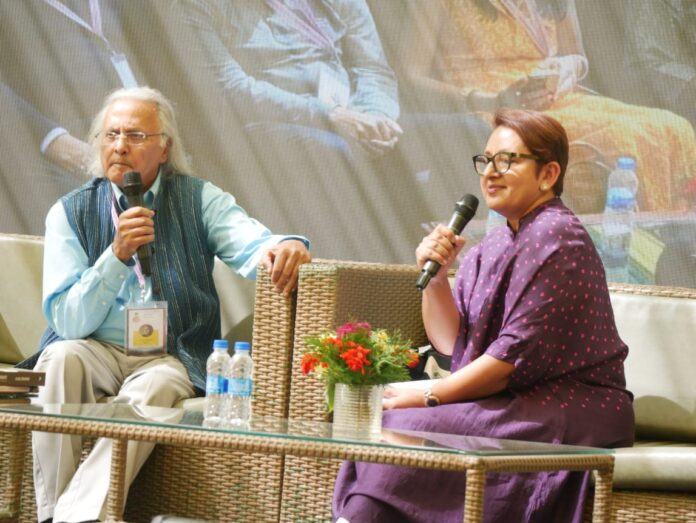Kasauli (Himachal Pradesh, India) (IANS): Prolonged diplomatic strain in Indo-Canadian relations has cast its shadow on the 12th edition of the Khushwant Singh Literary Festival with former Research and Analysis Wing (R&AW) chief A.S. Dulat and former Canadian premier Ujjal Dosanjh expressing serious concern at the situation.
Though both of them talked primarily about their books, ‘The Ties That Divide Us’ by Dosanjh and ‘A Life In The Shadows’ by Dulat, discussions in this picturesque hill station of Himachal Pradesh in their sessions, the diplomatic row between India and Canada following allegations of a potential link between agents of the Government of India and the killing of Khalistan supporter Hardeep Singh Nijjar in Canada.
Dosanjh, who has been a premier of British Columbia, suggested both the Indian and the Canadian governments should hold talks to diffuse the ongoing crisis in the interest of the common people and suggested that India relax visa restrictions in view of the festive season.
In conversation with Kim Lalli on the topic, Dosanjh admitted Canadian Prime Minister Justin Trudeau “might have jumped the gun by holding Indian agencies responsible for the killing of Khalistan activist Nijjar” for some reasons but the relations between the countries should not have been so strained.
Talking about his book, Dosanjh traced his journey from a remote village in Punjab to Canada in his early twenties. He asserted that since he carried both the cultures along he seriously wanted the Indo-Canadian relations to get normal as soon as possible.
Talking about the activities of the Khalistani elements in Canada, he said his stand had always been clear: “If the Khalistanis want to express their mind and ideas, it is fine, but when they resort to violence it needs the strongest condemnation.”
Dosanjh also wanted the Canadian government to ensure that there was no disturbance of peace. Moreover, Canada must control such elements which propagate dismemberment of another friendly democratic country.
He added: “More importantly, the Khalistani elements should come to Punjab in India if they were so bent upon promoting the idea of Khalistan.”
A big majority of Sikhs in Canada, he said, were not in favour of Khalistan. It was just a small section of them, who have gone from Punjab, who were making it an issue.
The Khalistan movement calls for an independent homeland for Sikhs in India. The movement was at its peak in the 1980s in Punjab.
Dulat, on the other hand, strongly denied that the Indian agencies indulge in the kind of activities Trudeau was alleging. He said the Indian agencies don’t have such policies and designs.
But he categorically asserted that Canada should not become a haven for violent terrorists because it would cost it dear in the long run.
The former head of India’s external spy agency R&AW hoped the crisis between India and Canada would end soon. “These are temporary things, I hope the tension will blow over soon,” he added.











